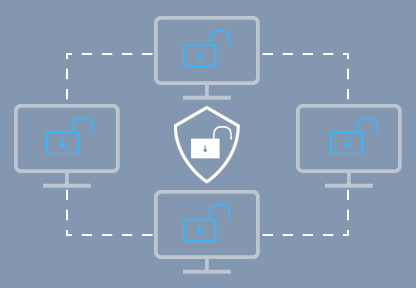Cybersecurity incident response is the best of times and the worst of times for security professionals. Without a doubt, it’s incredibly stressful. You face difficult questions from senior management, customers, and sometimes governments. That`s the painful side of incident response. On the other hand, it’s exciting work! Walking into work, you know that your contribution is critical to keeping the company safe. However, most of us can only handle so much excitement at work before the stress becomes overwhelming. What factors shape the success or failure of your cyber incident response program?
Four Fundamentals That Drive Cyber Incident Response Capabilities
Self-assess your capabilities on each of these points before you read on. Without awareness of your strengths and weaknesses, you’ll be unable to respond to cyber events effectively.
1. Leadership
You need to appoint a single point of contact to run cyber incident response work. To maximize resiliency, we recommend also selecting a backup person for this role in case the primary person is on vacation or away from the office.
Self-assessment question: Have you appointed a specific person (and that includes you) to lead the response to cyber incidents?
2. People
The right people make a tremendous difference in overcoming a cyber incident response. If the entire team is made up of junior staff, for example, the team may lack the experience to assess the impact of cyber events. Deficiencies may be addressed through a combination of professional development, hiring, and outsourcing.
Self-assessment question: When did the IT leadership last review the adequacy of the company’s people for cyber incident events?
3. Technology
Without the right security hardware and software, recovering from a cybersecurity incident will be difficult. For example, patch monitoring tools can help you detect and minimize vulnerabilities resulting from known patch problems. Penetration testing software is another useful way to identify problems quickly.
Self-assessment question: Does your team find your current suite of cybersecurity technology helpful in addressing cybersecurity incidents? What tools and apps are they interested in exploring?
4. Process
A methodical approach to security is vital because otherwise, you’re likely to ignore blind spots. For instance, you may forget to review inactive user accounts periodically unless you have that item tracked in your internal process.
Self-assessment question: Do you have a policy in place to review inactive accounts periodically?
5 Practical Ways to Enhance Your Cybersecurity Incident Response
Don’t make life hard on yourself. Use these strategies to enhance your cybersecurity incident response capabilities quickly.
1. Get More Free Time with Cybersecurity Automation
The most common complaint we hear from cybersecurity professionals: We don’t have time to do anything else! When you feel that overwhelmed, it’s going to be tough to take proactive steps to improve your situation. To free up more staff time, use Apollo to handle everyday IT security tasks. Apollo is an AI chatbot that works with your company website, SMS, Skype, and Slack to respond to identity and access management requests quickly.
Once you have Apollo implemented, you’ll start to have several hours or more free per month. Now that you have that added free time, use the following strategies to improve your cybersecurity incident response capabilities.
Resource: Do you need to make a case for implementing Apollo? Find out how you can use it to reduce IT service errors: Improve IT’s Reputation in Your Company by Cutting 99% of Support Errors.
2. Test Your Skills with a Cybersecurity Incident Response Scenario
Until your cybersecurity skills are tested in practice, you’ll never have confidence in your cybersecurity incident response capability. Rather than wait to be attacked and hope for the best, run a scenario or simulated cybersecurity incident response. If you have a large team of 10 or more dedicated cybersecurity staff members, you can probably run such an exercise internally. If you have a smaller team, you may need to seek out external support.
3. Review External Options for Additional Support
Cybersecurity incident response is a specialized field, and your staff may not be equipped to handle it on their own. That’s why there’s an entire industry of “on call” consultants and advisors who can help you when you’re hit with an attack or another event. In the case of a larger company or a publicly traded firm, you may also want to consider making arrangements with a PR or communications firm to keep your stakeholders informed of the crisis.
4. Increase Your Organization’s Redundant Capabilities
What happens if your primary data center goes offline due to a cybersecurity incident? You need some way to switch to an alternative site and resume service while the incident is investigated. Unfortunately, this strategy can become extremely expensive, especially if you want fast service and redundancy for all of your services.
To optimize your redundancy budget, focus on your “crown jewels” of data and services first. Other services and data may be offline for a longer period while the incident response team does its work.
5. Create a Project List to Improve Long-term Cybersecurity Resiliency
After you’ve implemented the other four strategies, you’ll have a mature cybersecurity incident response capability. What’s next? You can’t ignore this topic because complacency is the fastest way to fall behind. Instead, meet with your full technology team annually to come up with project ideas. Your mission is to come up with 5-10 project ideas that could contribute to enhancing your long-term cybersecurity resiliency. For example, you may create a professional development plan to help your staff earn ISACA certifications. After the project list is created, choose at least one idea from the list to implement each year.
Enable Your Cyber Incident Response Today
Before you close this page, choose one strategy out of the five listed above to work on. If you skip that step, your cybersecurity incident response competency will never improve.




